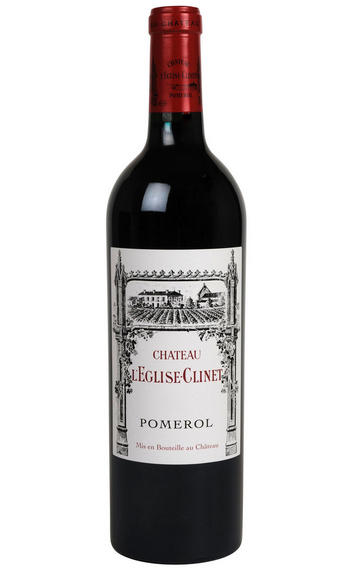
2013 Château l'Eglise-Clinet, Pomerol, Bordeaux
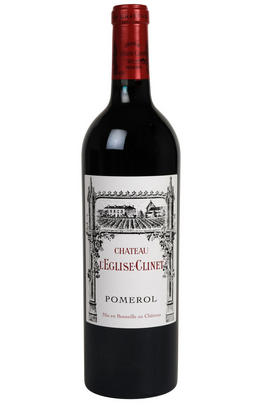
Critics reviews
Neal Martin - 28/10/2016
About this WINE
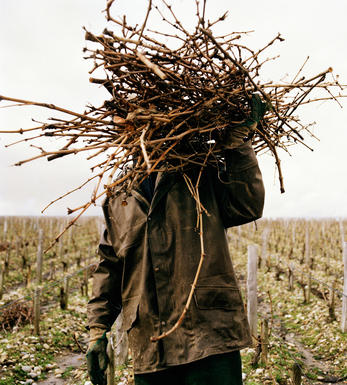
Chateau l'Eglise-Clinet
Château L'Eglise-Clinet is now amongst the elite of Pomerol producers. Its vineyards were originally part of Château Clinet and Château Clos l`Eglise respectively, and the property came into being in the 1950s.
L'Eglise-Clinet has been owned and run by Denis Durantou since 1982. Its 5.5 hectares of vineyards are located on the Pomerol plateau, where the soils are rich in gravel, clay, sand and iron. The vines have a high average age of around 45 years, with a proportion of them dating back to pre-1956, having escaped the brutal frosts of that year.
L'Eglise-Clinet's wine is typically a blend of 80% Merlot and 20% Cabernet Franc. The grapes are vinified in a combination of concrete vats and stainless steel vats. The wine is then aged in small oak barriques (50-70% new) for 18 months.
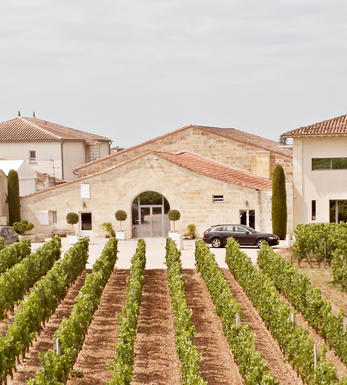
Pomerol
Pomerol is the smallest of Bordeaux's major appellations, with about 150 producers and approximately 740 hectares of vineyards. It is home to many bijou domaines, many of which produce little more than 1,000 cases per annum.
Both the topography and architecture of the region is unremarkable, but the style of the wines is most individual. The finest vineyards are planted on a seam of rich clay which extends across the gently-elevated plateau of Pomerol, which runs from the north-eastern boundary of St Emilion. On the sides of the plateau, the soil becomes sandier and the wines lighter.
There is one satellite region to the immediate north, Lalande-de-Pomerol whose wines are stylistically very similar, if sometimes lacking the finesse of its neighbour. There has never been a classification of Pomerol wines.
Recommended Châteaux : Ch. Pétrus, Vieux Ch. Certan, Le Pin, Ch. L’Eglise-Clinet, Ch. La Conseillante, Ch. L’Evangile, Ch. Lafleur, Trotanoy, Ch. Nenin, Ch. Beauregard, Ch. Feytit-Clinet, Le Gay.
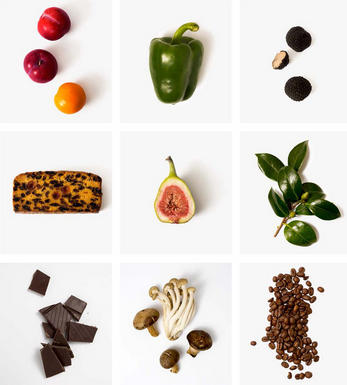
Merlot
The most widely planted grape in Bordeaux and a grape that has been on a relentless expansion drive throughout the world in the last decade. Merlot is adaptable to most soils and is relatively simple to cultivate. It is a vigorous naturally high yielding grape that requires savage pruning - over-cropped Merlot-based wines are dilute and bland. It is also vital to pick at optimum ripeness as Merlot can quickly lose its varietal characteristics if harvested overripe.
In St.Emilion and Pomerol it withstands the moist clay rich soils far better than Cabernet grapes, and at it best produces opulently rich, plummy clarets with succulent fruitcake-like nuances. Le Pin, Pétrus and Clinet are examples of hedonistically rich Merlot wines at their very best. It also plays a key supporting role in filling out the middle palate of the Cabernet-dominated wines of the Médoc and Graves.
Merlot is now grown in virtually all wine growing countries and is particularly successful in California, Chile and Northern Italy.


Buying options
Add to wishlist
Description
The 2013 L'Eglise Clinet has a very precise, tightly wound bouquet with limestone-tinged, brambly red berry fruit, the Merlot still very expressive and imparting comely floral scents. There is something almost Burgundy-like about the nose. The palate is medium-bodied with fine tannin surrounding a core of citrus-fresh, lively red fruit, silky smooth in texture, approachable in style, with an almost symmetrical finish. This was a great L'Eglise-Clinet in barrel in the context of the vintage and it remains a very persuasive wine in bottle. Bravo Denis Durantou - a winemaker that can overcome even the most deplorable of growing seasons!
Neal Martin - 28/10/2016
wine at a glance
Delivery and quality guarantee